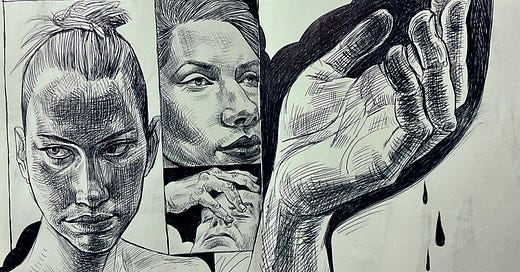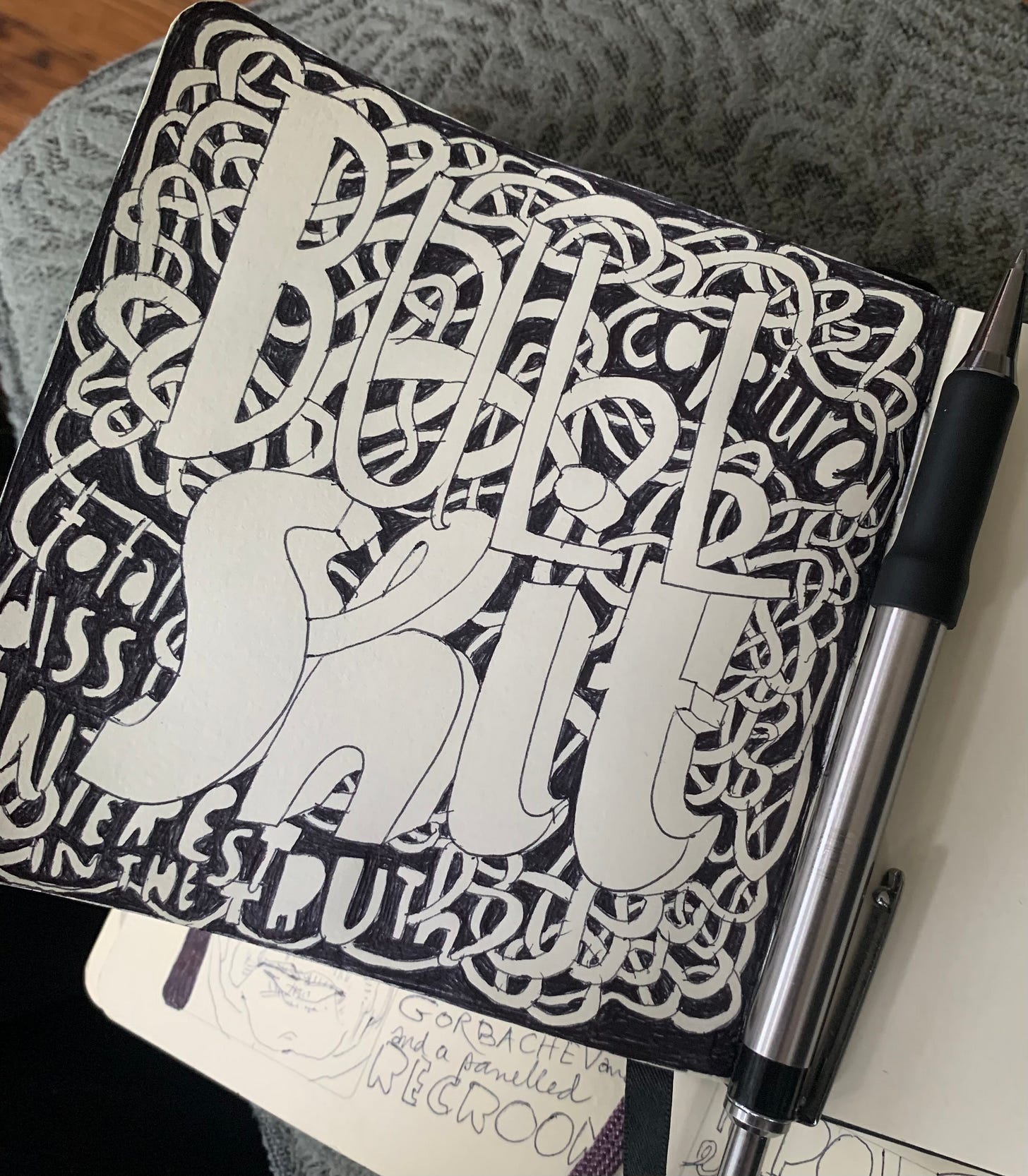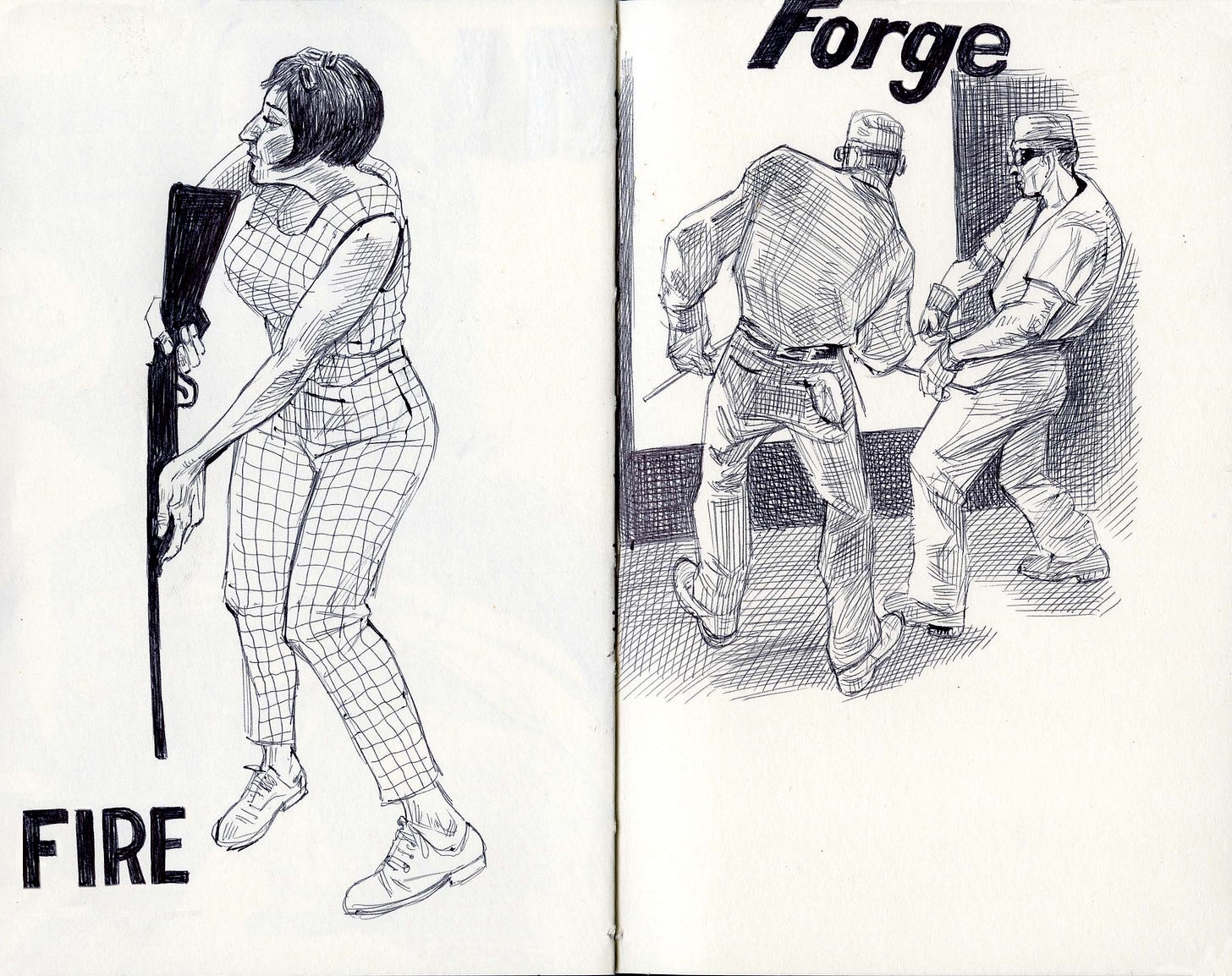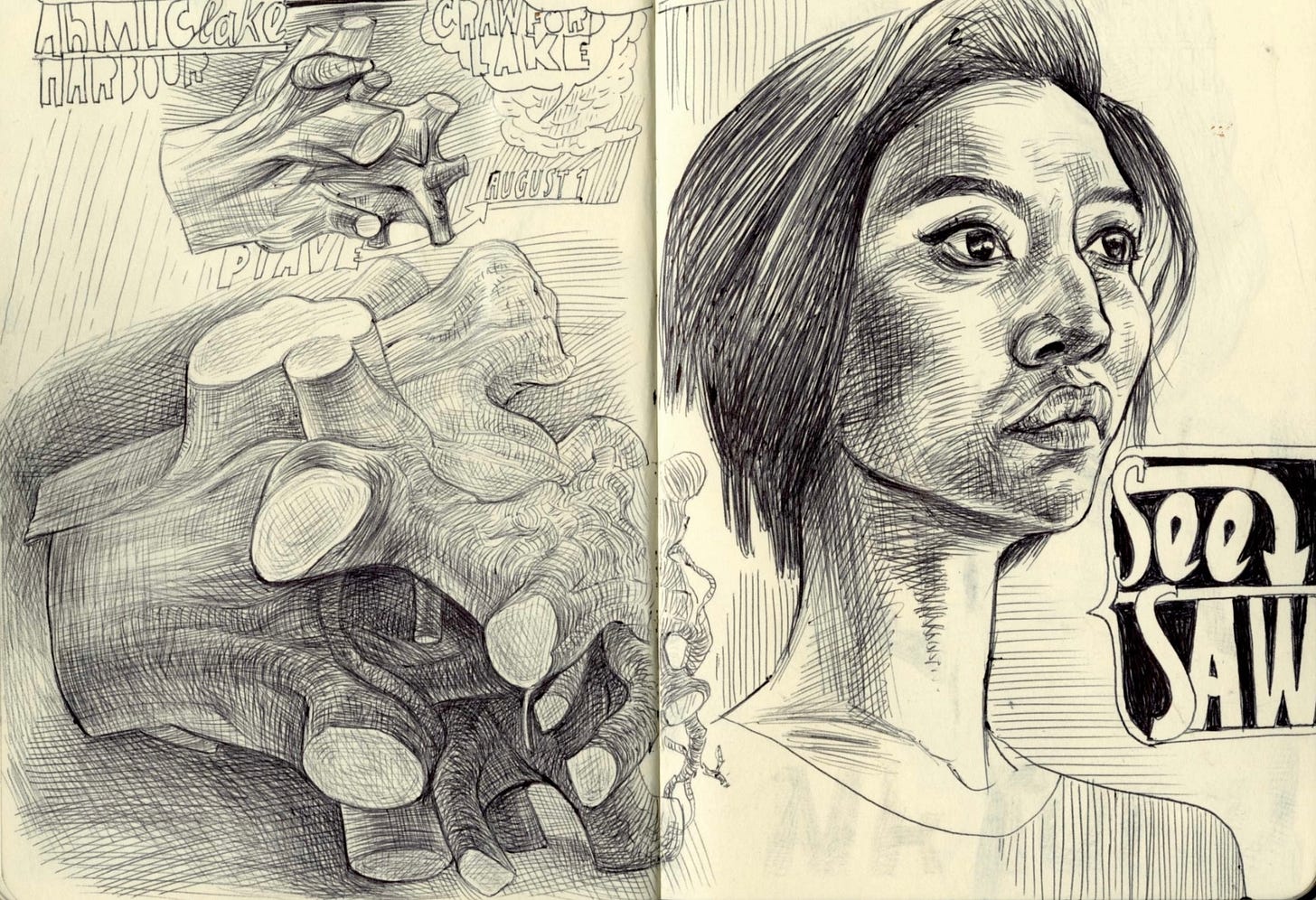Strange days. The reason I started Eyedrop Weekly was to focus on what I know and care deeply about. I’m glad that Substack offers this opportunity for reflection and sharing. Co-founder of Substack Hamish McKenzie posted a short essay about the events of July 13th…
People will tell you that things are only going to get crazier. Maybe they will. But they don’t have to. You don’t have to. You can slow down. You can take a breath. You can take back your mind.
Eleven years ago I began posting news of the day visual takes on every social media platform as part of a sabbatical project, I think I gave up on Day 154—I’m a slow learner. I seriously wanted to take my mind back. How did we get here that the sharpest tools of persuasion we use are best at blunting the truth? Hopefully we are all seeking a path to be better people. Where is truth in this equation?
Our relationship to truth has soured. One of the central ways this has happened was laid out by Harry G. Frankfurt, in his book On Bullshit. Bullshit, beyond being a satisfying profanity, is not about lying, rather it is a total disinterest in the truth. The deeper we drop into a lack of concern for the truth, the more we lose our capacity to avoid self deception and certainty floods in. This isn’t our first rodeo with truth taking a beating, the Sophists in 5th century BCE Greece not only didn’t care about truth claims, their intent was to teach their brand of bullshit to everyone. The person who wins the argument makes their own truth. Relevance is severed from the truth. We aren’t talking past each other, we are not talking about the same things, in the same breath, with the same ends.
I think my area of expertise, drawing, has some utility here as drawing from observation begins in self deception. Observation is key because it is the basis of the relationship we have with the world and then drawing asks you to manifest and interpret what is seen into tangible marks. How we see what we see and the ways that our interpretation of the world can be manipulated are central aspects of concern in my drawing class. The point is not to win the argument and master a drawing problem, it is rather to see our own bullshit and pay attention to what we are doing.
Paying attention helps us to track relevance and reality. Truth? Is there such a thing as a true drawing? No, that’s looking at drawing as a noun, I’m talking about the verb —- it isn’t the artifact that matters, it’s the act. We need to scrape through the comfortable blurring our cultural and personal baggage affords us to see how we see and find meaning in what we are doing. I think drawing is a practice that can train our attention to claim our minds back and just maybe help us to find out what we really care about. If we don’t know what is relevant, the truth is lost to us.







